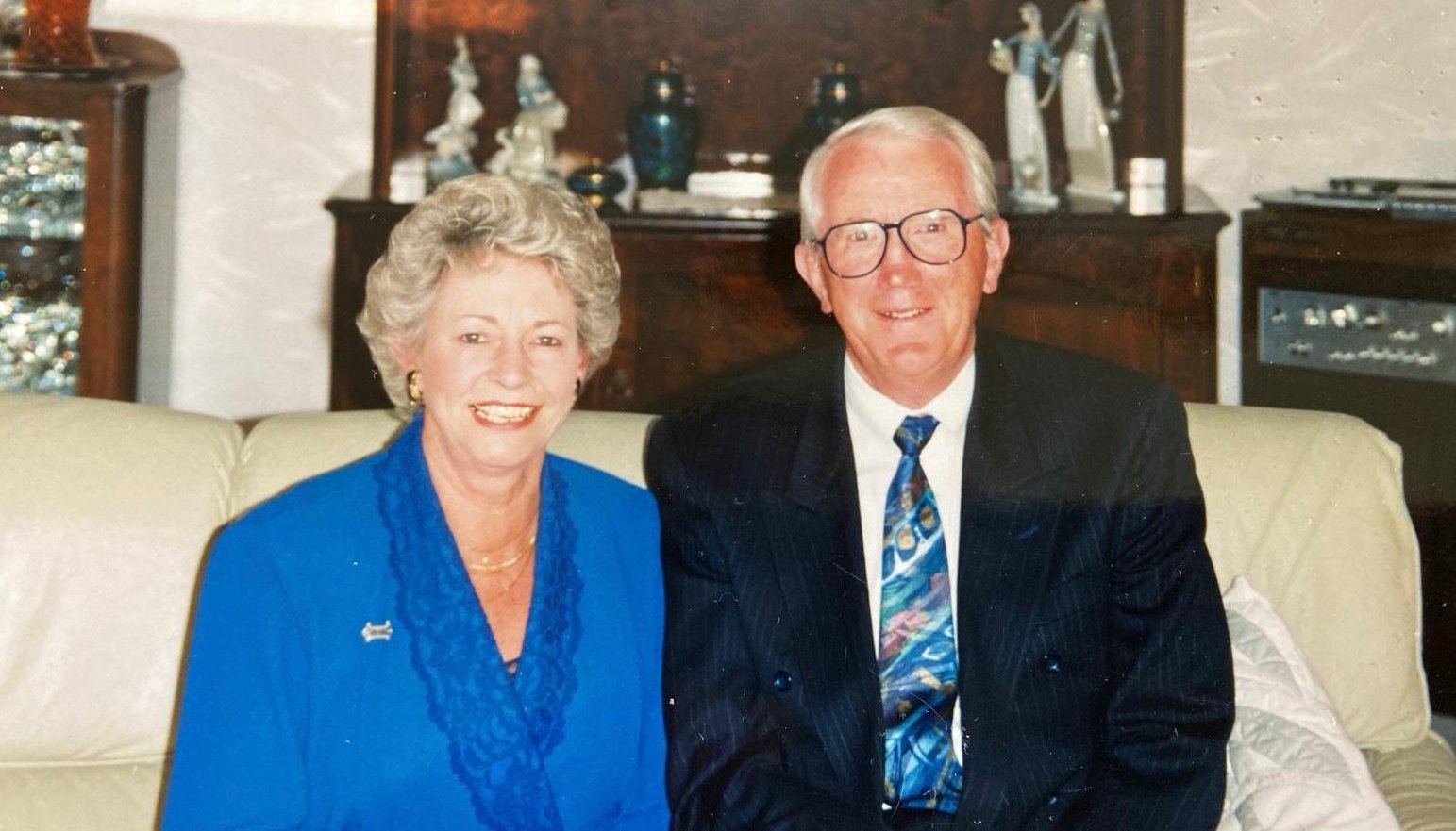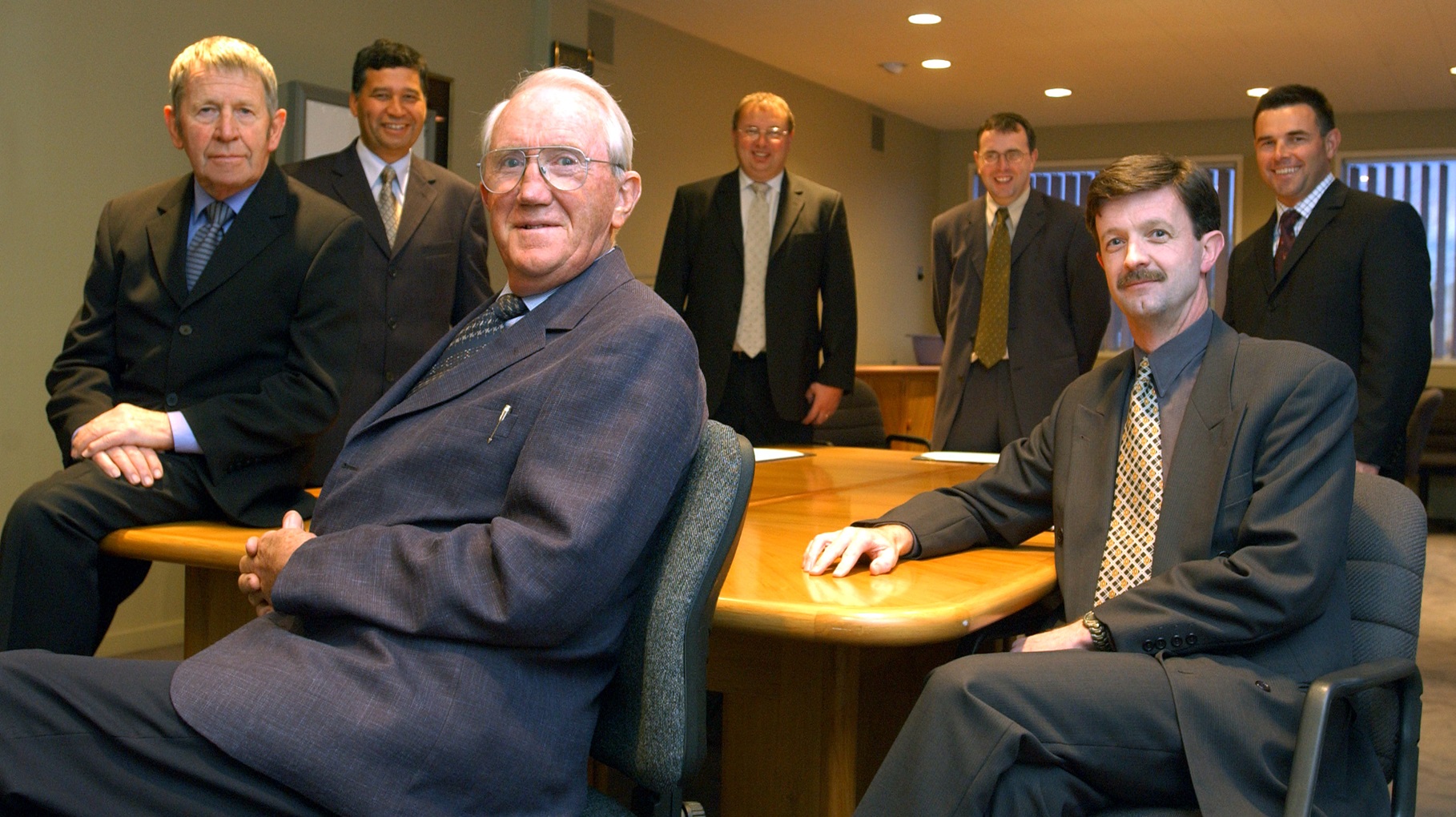
The collapse of wool textile company Mosgiel Ltd in 1980 has been described as one of the major receiverships in New Zealand’s history due to its financial and human impact.
Playing a pivotal role in the lengthy process was Dunedin accountant Tony Anderson, whose role as joint receiver resulted in him being in charge of 1250 staff in Dunedin, Mosgiel and Ashburton, warehouses, houses and even a community hall.
Mr Anderson, who died on December 28, aged 95, later described it as one of the most difficult and stressful periods in his life, the fallout even taking him to the House of Lords in London.
But he was also very proud of the overall result; workers were paid redundancy and shareholders also received an unexpected payout, mainly due to utilisation of tax credits. He believed the payments to shareholders were unique in New Zealand receiverships.
Mr Anderson’s introduction to the company came through his friendship with businessman Peter Fels, who was chairman of Mosgiel Ltd and who invited him to join him at a board meeting.
In his own written memoirs, Mr Anderson said there was conflict between the Bank of New Zealand and Broadbank, the first and second-ranking debenture holders, as to renewal of $1 million in rollover finance, and he was asked to negotiate with the parties to deal with the impasse.
After two weeks of discussions, Broadbank formally requested repayment on default and then applied for receivership. Mr Anderson accepted the board’s invitation to act as receiver and Bill Tomkins was appointed co-receiver; at that point the two men became technical owners of all the company’s assets.
Their position was made very difficult from the start as the directors all resigned and the pair had to prevail on two senior staff to accept director roles so the necessary signatures could be obtained.
The receivers’ first meeting with the unions did not go well — "all hell broke broke loose" — and the unions threatened to blacklist all sales and deliveries and to strike unless redundancies were paid.
Protest marches in Mosgiel and Dunedin gained national attention and the pair were called to Wellington to discuss options with Prime Minister Robert Muldoon.
But the Taieri River had flooded and Momona Airport was out of action for several months, so they were forced to fly by single-engine planes from the Taieri aerodrome.
Eventually, an agreement was put together with Alliance Textiles but the company only wanted to take over the smaller mill in Mosgiel and 200 employees, and the receivers were left to dispose of Roslyn and all other mills and assets.
Calling a meeting with the 500 workers at the Roslyn mill, senior mill management and the two receivers mounted the rostrum and announced the mill would close.
"We had expected a hostile reaction but all we got was blank faces and dead silence. It was one of the worst moments of my career," Mr Anderson said.
What followed was five years of wheeling and dealing with the sale of all the plant, stock and buildings. A local firm of lawyers was kept occupied dealing with claims against the receivers and resolving disputes.
As they got closer to retiring as receivers, there were still lawsuits against the pair to be resolved. The main issue related to preference shares, which carried with them the right to a yearly dividend before any dividend was paid to ordinary shareholders.
Mr Anderson’s advice was that no dividend could be paid as there were no accumulated profits in the company that could be sourced. A hearing before the Supreme Court determined the shareholders were entitled to their claim and a subsequent appeal in the Court of Appeal went against the receivers.
But Mr Anderson maintained his interpretation was correct and Dunedin lawyer Neville Marquet agreed, saying he was prepared bring the matter before the House of Lords. Mr Marquet contacted a QC in London, who agreed to act for them with a very substantial pre-payment required.
The pair travelled to London for the hearing, held in a courtroom next to the prime minister’s residence in Downing Street. The decision came in their favour and a celebratory dinner was held at The Ritz that night.
Mr Anderson’s daughter Helen said her father set a very high bar for his children; not for achievement, but in terms of values.
"We watched first hand while Dad wrestled with the role of being receiver. He knew that many jobs, of people who had few options, were on the line. He was living his core ethos of being relentless in acting with integrity and using his strengths to benefit others."

"Granny seemed to have run out of names since all his six brothers and sisters had several middle names. He was simply called Atherton Anderson after the street," Helen said.
He adored his siblings and his brothers Max, George and Joe taught him hunting, shooting and fishing, mainly based at their crib at Waikouaiti.
As a young man, he went to live in Palmerston North with his sister Jean, a successful businesswoman, and her husband Maurice O’Keefe.
Mr O’Keefe was an accountant and encouraged Mr Anderson into accountancy but it was his sister’s entrepreneurship which sowed many seeds for his subsequent career.
He started his working life with the Inland Revenue Department while studying accountancy and he qualified in 1951 and was appointed an inspecting officer the same year.
But as Gordon Parry’s history of Dunedin accountancy firm Polson Higgs — which Mr Anderson founded — said, the path of government service was too narrow for the young chartered accountant.
In 1954, he married Patricia Hartley Hay, whom he had met on a crowded bus going to a dance at Brown House, and soon after left IRD to start his own accountancy practice.
Despite the widely held public view that accountancy was a boring business, Mr Anderson recalled he had found it to be exactly the opposite: "It enabled me to successfully create a rapidly developing business and has been the entree to meeting a great variety of businesspeople.’
His clientele grew quite rapidly — surprisingly, some of his former targets in tax investigations heard he was in business and came to him as his first group of paying clients.
Various partnerships and iterations of the firm followed, including Anderson and Stewart, Anderson and Co, Lawrence Anderson and Buddle and Price Waterhouse. Some interesting people worked for Mr Anderson, including Trevor Scott who at one time shared a room with Neville Bain, both going on to carve out notable careers. Eventually, the firm morphed into Polson Higgs.
Mr Anderson retired in 1989 and Mr Parry wrote how his skills and leadership had proven invaluable and he won admiration from the profession as a whole, as well as in and around Dunedin. He continued for some time as a consultant.
The death of his wife in 1983 was a blow but he was well supported by good friends, including Val Stewart — Patricia’s best friend — who nursed her during her final days. Those close connections continued when he married Mrs Stewart’s sister Lenore (Lennie) several years later.
Basketball was an important part of Mr Anderson’s life. He both played for and coached Otago and only stopped playing for the Taxes club when he was in his 50s, a club he started playing for when he worked in the IRD. He was also involved in Nuggets governance.
Helen Anderson said her father’s life was guided by very strong values of family, long-standing friendships, tolerance, integrity and calculated risk-taking.
He was adored by his grandchildren and he was immensely proud of all of them, following their lives with intense interest.
When Six60 opened for Ed Sheeran’s Dunedin concert, Mr Anderson remarked: "who is that ginger git that’s playing after Matiu?’ — referring to his grandson Matiu Walters. Matiu also performed at his grandfather’s funeral.
He modelled an active and full life, taking his grandchildren fishing, giving them rides on the ride-on lawn mower, teaching them to water-ski and, most of all, teaching them how to play Stop the Bus, a game he learned to play at the Waikouaiti crib more than 80 years ago.
There was still an annual Stop the Bus championship and cup that was fiercely contested in Wānaka. Only family, extended family and honorary family could contest the title. His last game was in Wānaka six months before his death and even then he attempted to change the rules in his favour, his daughter said.
Even though he and his friend Garth McKay built the family’s first house in Wānaka, his "Scottishness" came to the fore if anything broke.
"He mended tables, umbrellas, chairs, rubbish bins and anything vaguely DIY-able. As you pass the wonky Anderson sign at our gate at Wānaka think of him," she said.
Mr Anderson is survived by his wife Lenore, daughters Helen and Barbara, son Stephen and their families. — Sally Rae












